An Album Comparison
Hadestown concept album and cast recording.
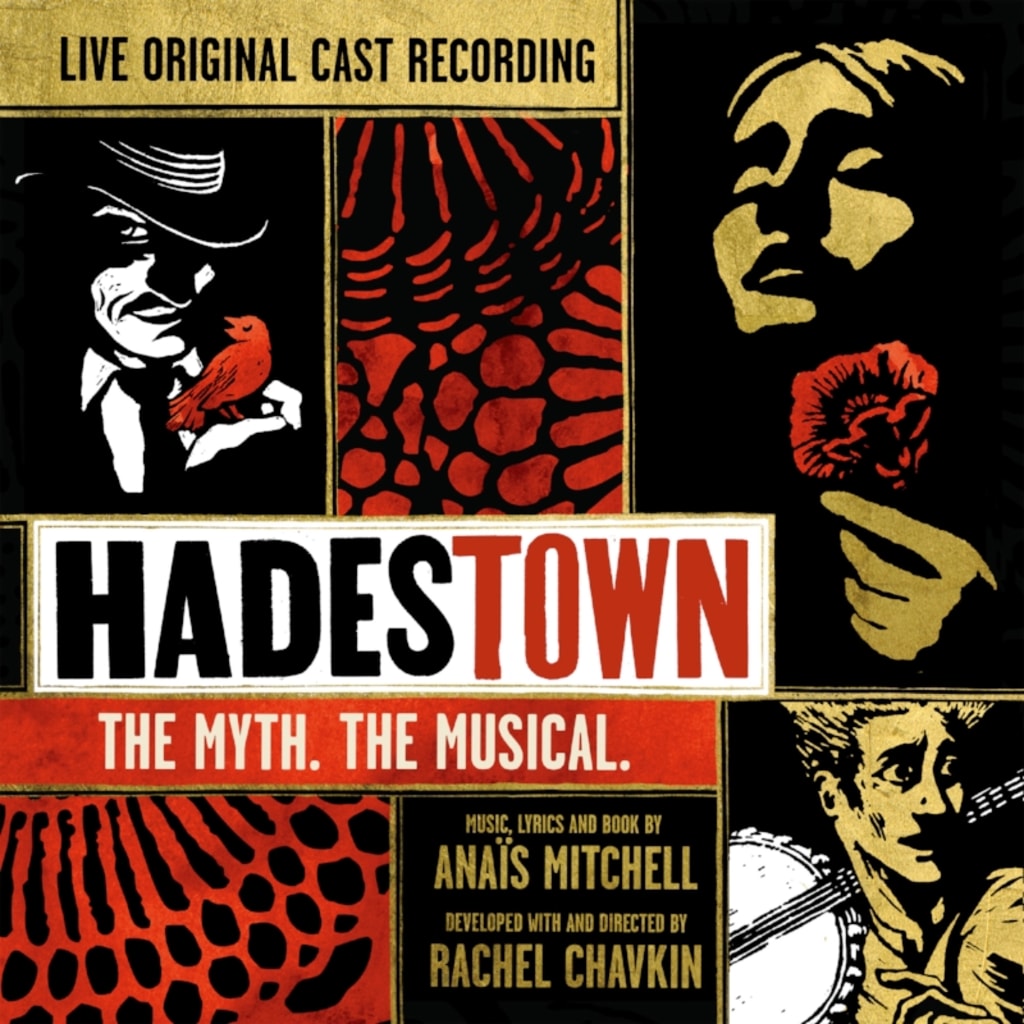
I first discovered the folk opera Hadestown a couple of years ago when I was researching the myth of Orpheus and Eurydice, one of the favorites, and found that there was a concept album based on this story. The album was available for listening on YouTube and I was instantly obsessed. Unlike your typical concept album, there are different singers playing the different characters in the story. It feels like the cast recording of a musical and my first thought was that there should be a stage production. Sure enough, there was one in New York but it came and went before I had the chance to see it. So I looked up everything I could find of the production online which was tantalizingly little. Then it was announced a few months ago that a cast recording was to be released and I quickly pre-ordered it off of iTunes and waited for the whole thing to be available with a track released every few weeks to wet my appetite.
For the purpose of comparison, I am going to go through each track on both of the albums, some of which overlap, and give my thoughts on the story and how it plays out in each version. The original concept album will be referred to as “H” while the cast recording will be referred to as “C”.
C begins with a song called Road to Hell which sets up the setting: a vaguely Great Depression era American south or midwest cum mythological Greece. It also introduces some of the divine players in the story about to unfold, Hermes, the messenger god who acts at the show’s narrator, the Fates, who control the destiny of mortals, and Persephone, queen of the underworld and goddess of spring, and how a young mortal named Orpheus will try to cheat death because of love. H gets right into introducing the lovers Orpheus and Eurydice (Anaïs Mitchell, the songwriter behind Hadestown and Justin Vernon of the band Bon Iver). It’s first track, aptly titled Wedding Song, tells of how Orpheus and Eurydice wish to get married. Eurydice is concerned about how they are going to support themselves but the happy-go-lucky Orpheus assures her that everything will work out for them.

Road to Hell introduces the story’s themes such as fate and undying love while Wedding Song sets up the struggles that our sweethearts, Orpheus and Eurydice, will face. As Road to Hell says “It was hard times,” which is bad news for our romantic poet Orpheus, who seems like the kind of guy who is very good at wooing a girl but is perhaps not as good at being a husband and provider.

The second tracks of H and C paint different pictures of the world up above. Livin’ It Up On Top presents the world outside of Hadestown as fruitful, summery, and idyllic. Persephone feels stifled by her marriage to Hades and her life in Hadestown and only feels like she can be herself during the six months of the year she is allowed to spend with the living, who appear to be enjoying themselves greatly and appreciate nature’s bounty.
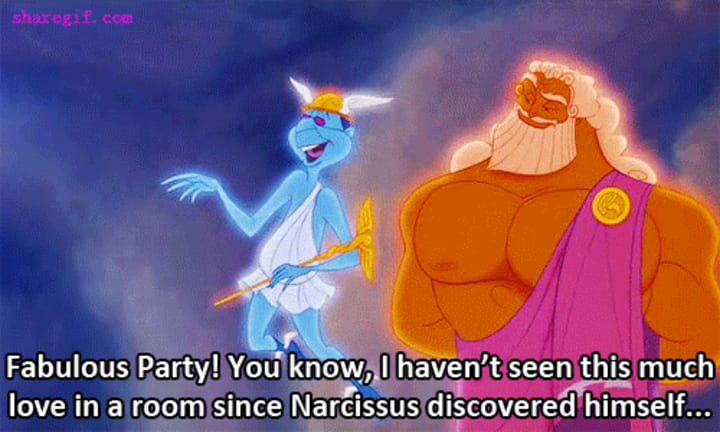
While Epic I, which features in both versions, portrays the mortal world in a much bleaker light. Like Road to Hell, it provides the imagery of a railroad line, acting as a River Styx bringing people to the underworld or Hadestown, built by the lost souls come under Hades’s sway. The only alternative to starvation and poverty is body crushing drudgery and soul-crushing conformity in Hadestown. We also see Orpheus’s idealism in Livin’ It Up On Top. He values independence over money and is distrustful of those who take more than their fair share and seek to enrich themselves at the expense of others, an attitude which will later put him in conflict with Hades. Way Down Hadestown, which also appears in each version, shows that the world that characters live in is a tough one, so tough that people are willing to sell their souls to Hades to be able to survive. We also begin to see a disconnect between Orpheus and Eurydice. Orpheus wants nothing to do with Hadestown and see it as a literal hell-hole but Eurydice is intrigued by its promise of a better life.

An interesting adaptation change is that Eurydice’s verses about how great things must be in Hadestown are sung by the fates in the C version, and Eurydice sings her line “Kinda makes you wonder how it feels” in response as if the fates are influencing her later decisions.
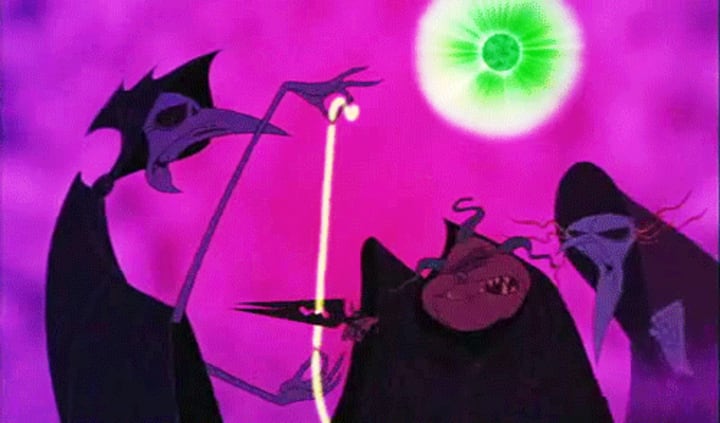
In All I’ve Ever Known, we see that Eurydice’s life has seen a lot of hardship and her love for Orpheus has made her feel more optimistic. Much like in Wedding Song, Orpheus assures his lover that they can face anything as long as they are together. The world around them may be bleak and tough but their love is one of its few bright spots.

The song Chant I in C tracks the passage of time from idyllic summer to harsh winter as well as the souring of the two relationships we see in the story: Orpheus and Eurydice and Hades and Persephone. Hades tries his hardest to please his wayward wife with elaborate gestures but Persephone misses the simpler times back when they were first married and Eurydice is frustrated with Orpheus’s inability to provide for them.
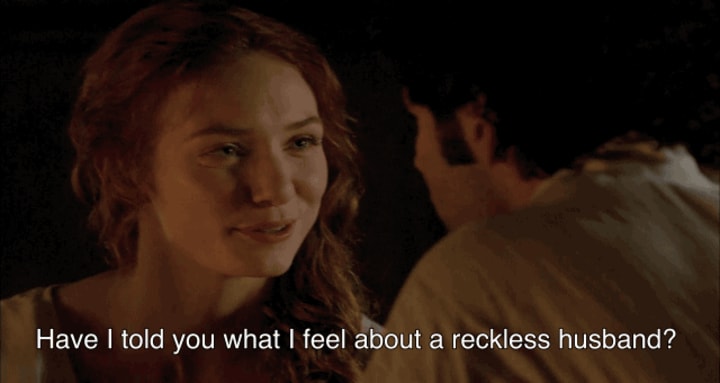
The desperate and vulnerable Eurydice is easy prey for Hades who is compared to rattlesnake going after a songbird. The imagery of a songbird paints Eurydice as flighty and unable to handle hardship since birds tend to fly away to a warmer climate during the winter. Hey, Little Song Bird shows Hades luring Eurydice away from Orpheus and her hand to mouth existence.
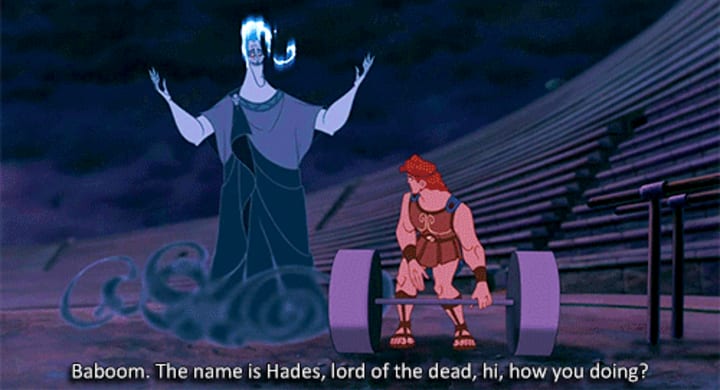
When the Chips are Down is sung by the fates who are trying to convince Eurydice to accept Hades’s offer. In H they come across as mean girls who are mocking Eurydice for her bad life decisions whereas, in C, they are older and more cynical figures influencing the young and naive Eurydice to put her own survival ahead of everything else.

The C version of Wait for Me features Orpheus looking for Eurydice and being chastised by Hermes for losing track of her. Orpheus convinces Hermes to give him directions on how to get to Hadestown and rescue Eurydice. Despite the hiccups in their relationship, Orpheus’s love for Eurydice is strong enough to see him through to Hell and back.

Why We Build the Wall gives a closer look at how things operate in Hadestown. The lost souls who end up there are put to work building a wall that they are made to believe will keep out poverty and hardship. This song is in a call and response format with Hades drilling his followers in the tenants of his ideology: that they must build a wall around Hadestown to keep out those who wish to come in and take what they have. Sounds familiar? The C version shows Eurydice going into Hades’s office and giving him her soul and possibly more.
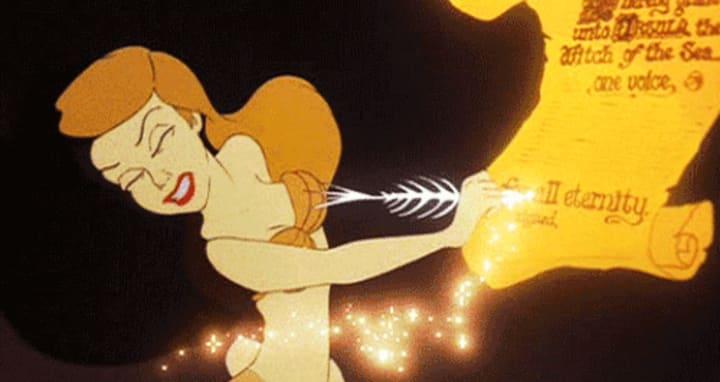
In Our Lady of the Underground, Persephone undermines her husband's operation by providing his employees with things that will help them forget about their drab existence at a secret speakeasy. This is set up earlier in Way Down Hadestown when Persephone mentions that she is bringing drugs and alcohol back with her to help her get through the winter. The crack in the wall mentioned by Persephone in Our Lady of the Underground is a representation of the flaws in the system that Persephone and Orpheus try to exploit.

Eurydice begins to regret her decision to come to Hadestown and describes her journey there in Flowers (Eurydice's Song), which features in H, using imagery suggestive of drug intoxication and being sexually assaulted. The vague nature of her memories of her previous life with Orpheus shows that they have begun to fade. C shows Eurydice's realization that things in Hadestown are not all she expected in Way Down Hadestown II. Persephone and the fates mock her for her naivety and for getting conned by Hades out of her freedom and her life.

The fates similarly mock Orpheus in Nothing Changes in H, by saying that he is foolish for believing he can cheat death and rescue Eurydice. This plays out differently in C, with Chant II, where Hades tells the recently arrived Orpheus that he was once an idealistic and romantic young man like him but learned that women are fickle and need to be placated with expensive things.
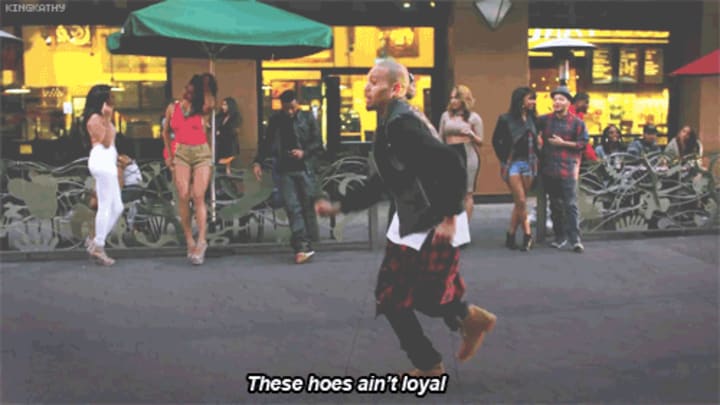
Persephone has a similar talk with Eurydice about how she was once a young girl hungry for wealth but learned that love was more important. Hades asks Orpheus to sing him one last song before he destroys him. In H, this song is called If Its True, where Orpheus tries to gain Hades's pity by singing of how hopeless he feels without Eurydice. C has him use a different tactic: reminding Hades of how he fell in love with Persephone and how all the wealth he has cannot compare with that love in Epic II, which appears later on in H.

Each version gives us a scene where Hades pounders what do in the situation: either keep Eurydice and feel bad about it or let her go and look weak and undermine his power. H has a song called How Long where Persephone tries to persuade her husband to free Eurydice and let her be with Orpheus but he fears that doing so will make him lose his authority. In the C version, Word to the Wise, the fates get Hades to come to this conclusion, making them arguably the true villains of the story. Hades has one more trick left to play. He allows Orpheus to leave with Eurydice under the condition that he is not allowed to look back.
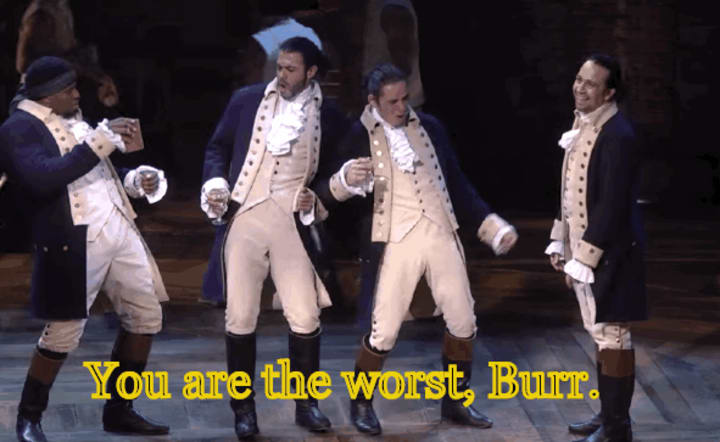
Orpheus and Eurydice get a duet in C called Promises where they decide that despite everything that has happened, they still love each other and want to be together. The frequent use of the phrases "I do" and "I will" are reminiscent of wedding vows. Wait for Me has a reprise in C where Persephone is about to leave again for her spring and summer sojourn outside of Hadestown. She and Hades decide to give their marriage a second chance when she returns in the fall. Hades and Persephone are a foil to Orpheus and Eurydice. The mistakes they have made are ones that the younger couple should learn from. Both couples, despite the ups and downs they have gone through, have a strong love and a strong bond.
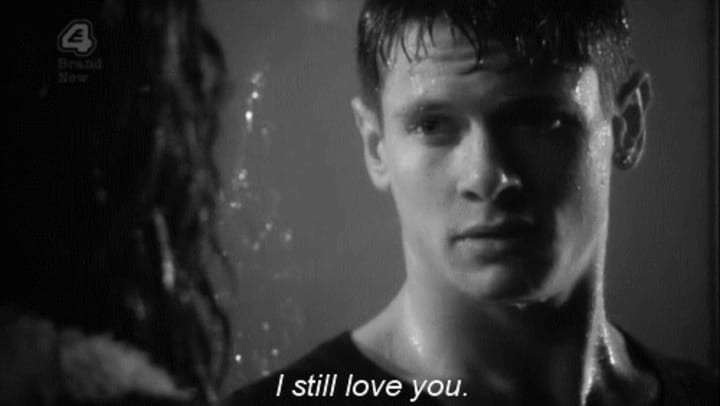
H skips right to Doubt Comes In which appears at roughly the same point in each version. It's the classic scene where Orpheus leads Eurydice out of the underworld, forbidden to look back upon her. The main difference in C is that part of Orpheus's verses are sung by the fates, who are making Orpheus suspicious of Eurydice and begin to falter in his determination.
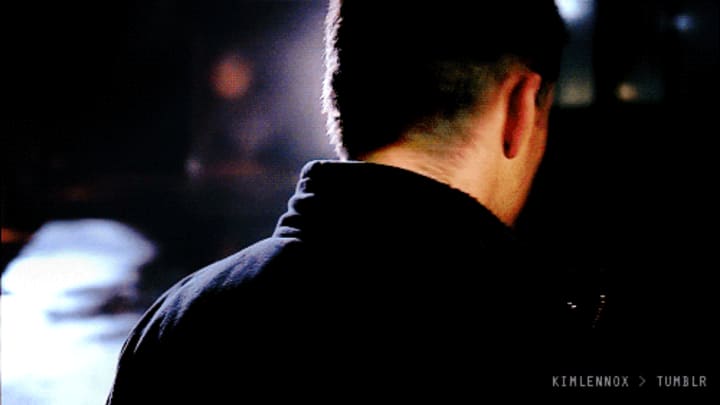
C ends with a reprise of Road to Hell and H ends with a song called I Raise My Cup to Him where Eurydice and Persephone toast Orpheus in a reverse eulogy, the dead praise and celebrate the living. Road to Hell II ends the story on a brighter note: spring returns and the love between Orpheus and Eurydice survived despite their separation. Those who are familiar with Greek Mythology will know that they will eventually be reunited in Elysium after Orpheus's death.
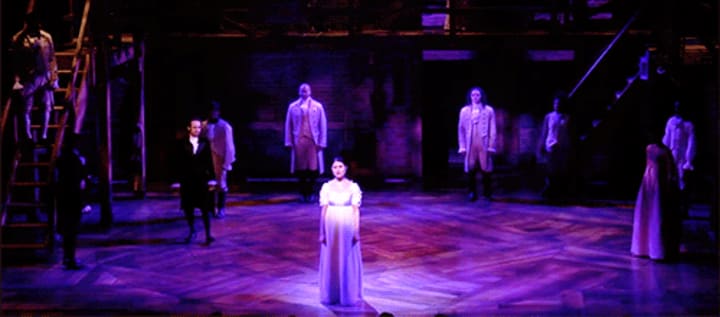
I would highly recommend both versions. The music is beautiful and poetic and the story is nuanced and compelling. But here’s a warning: it’s ending will destroy you emotionally. I think the stage production sounds very well done with all the performers doing a fantastic job. The actor who plays Orpheus, Damon Daunno, has a gorgeous voice and Amber Grey is hysterical as Persephone. Nabiyah Be, who plays Eurydice, is great as well though I prefer Anaïs Mitchell in the original concept album, whose honey and graham crackers voice gives the character a naive quality. I regret not being able to see this production live.
About the Creator
Rachel Lesch
New England Native; lover of traveling, history, fashion, and culture. Student at Salem State University and an aspiring historical fiction writer.
Enjoyed the story? Support the Creator.
Subscribe for free to receive all their stories in your feed. You could also pledge your support or give them a one-off tip, letting them know you appreciate their work.


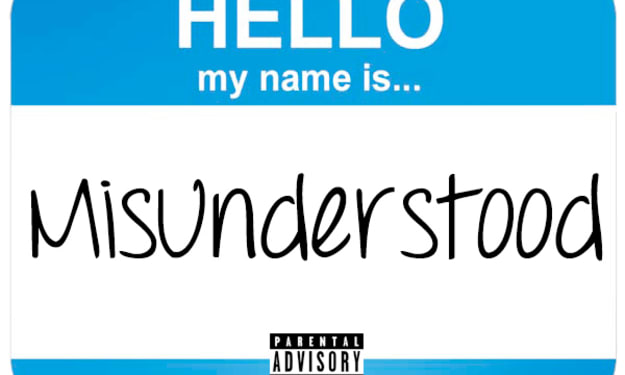



Comments
There are no comments for this story
Be the first to respond and start the conversation.